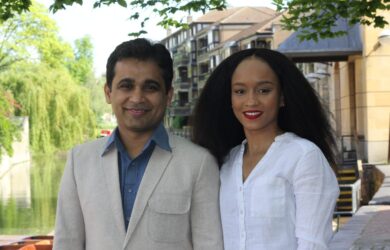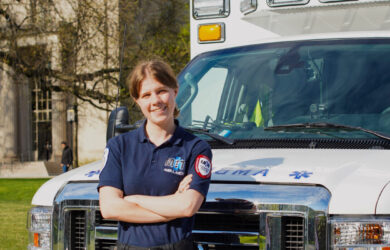Pradipta Biswas will take part in the largest India-UK ICT collaboration.
A Gates alumnus is one of a number of researchers involved in the largest India-UK ICT research collaboration into the communications of the future.
The nine-university consortium includes the University of Cambridge and Cambridge-based Toshiba Research Laboratories Europe. It has just been awarded £10m funding from the UK Government, involves 200 scientists in the UK and India as well as experts from ICT companies like BT Innovate in the UK and Infosys in India. Among them is Dr Pradipta Biswas [2006].
The new funding will be used for the second phase of the research into next generation telecoms networks which will focus on the development of low-cost ways of giving rural communities access to broadband as well as applications that address health, emergency, education and other needs.
Pradipta says: “I am a researcher in this project and will play a key role in making technology accessible for end users across both UK and India. Our research engages users in early design process, understands their requirements, formulates it in user models that provide simulation of users interaction and adaptation of electronic interfaces across a wide variety of platforms (like computer, kiosk, tablet, mobile phones) based on range of abilities of users.”
Later this year he will travel to India to conduct a series of user trials and analyse the usability requirements for rural populations.
The nine UK universities in the consortium are the universities of Cambridge, Ulster, Surrey, Lancaster, Bristol, St Andrews, Southampton, and two London institutions – Queen Mary, University of London, and University College London. They will collaborate with seven Institutes of Technology in India in Madras, Delhi, Mumbai, Mandi, Kanpur, Hyderabad and Bangalore.












